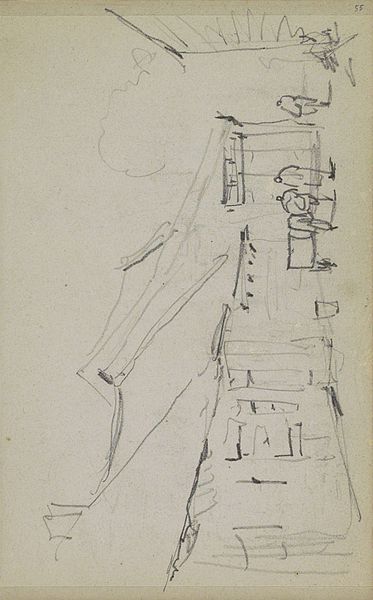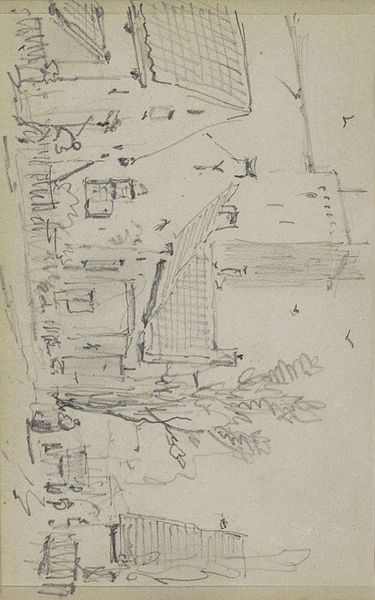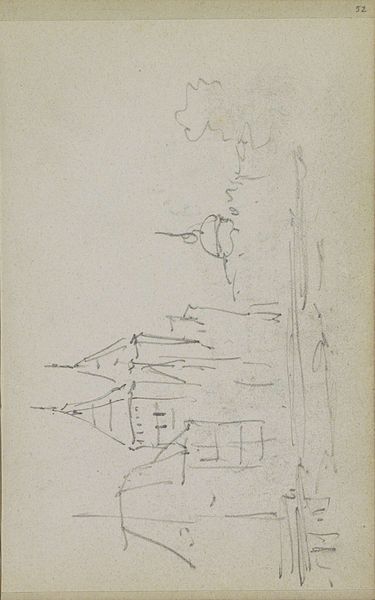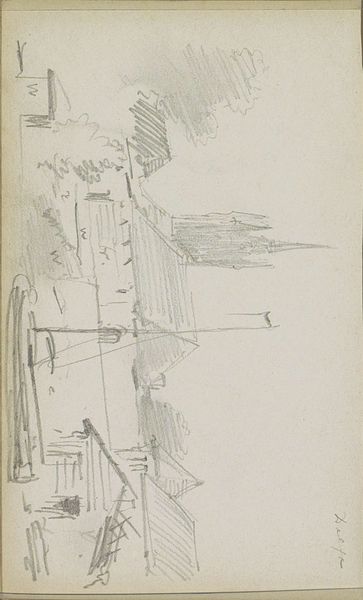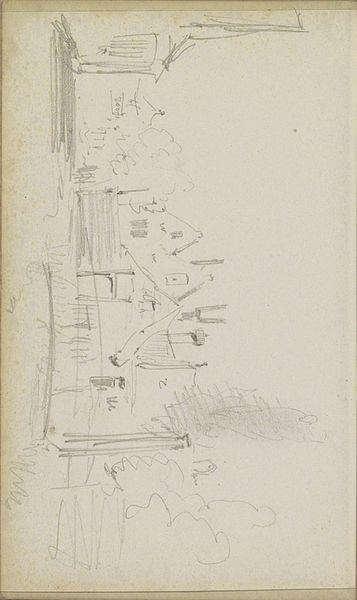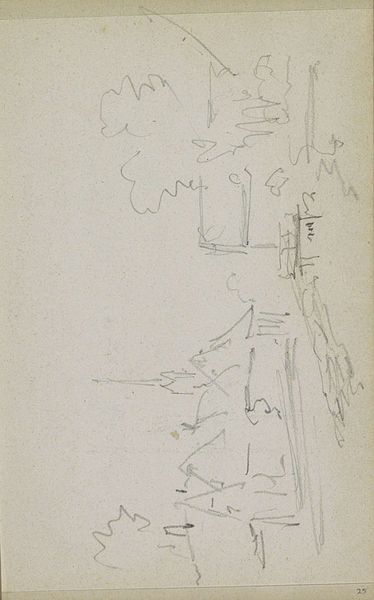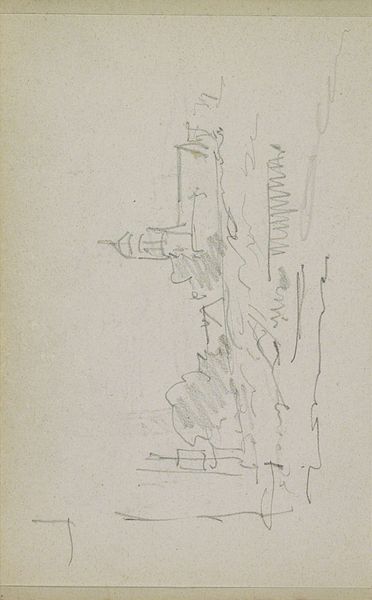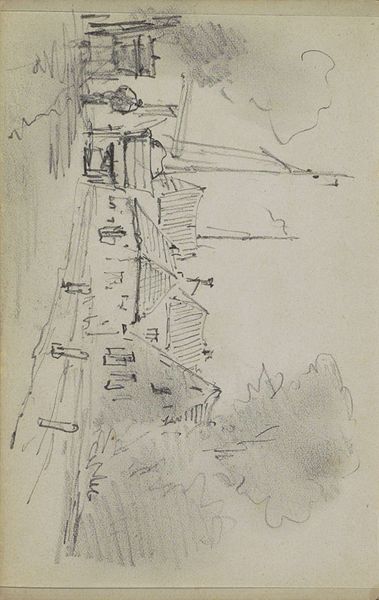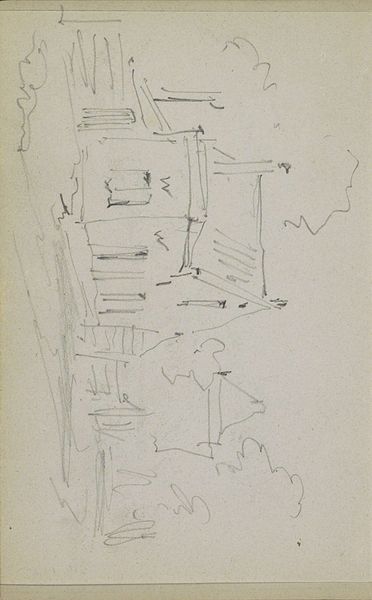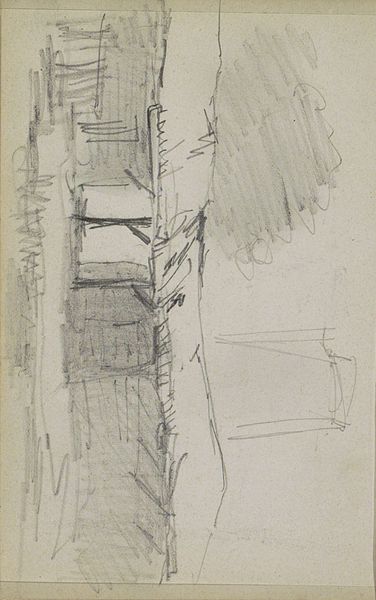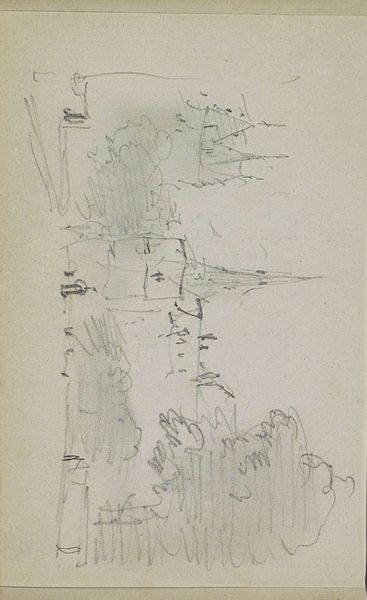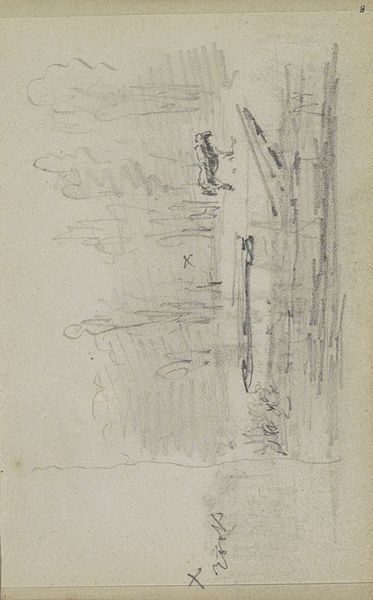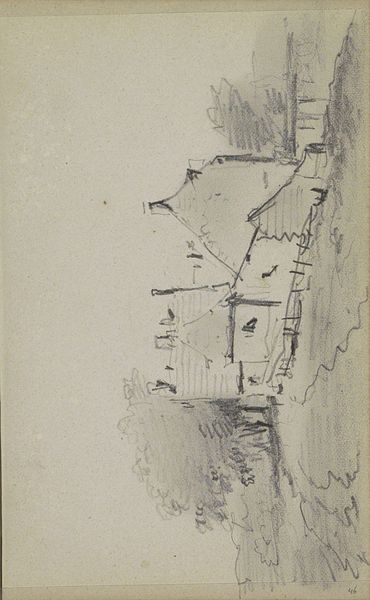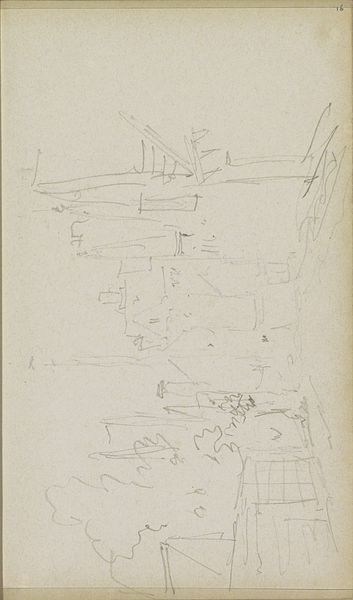
drawing, pencil
#
drawing
#
amateur sketch
#
light pencil work
#
impressionism
#
sketch book
#
incomplete sketchy
#
personal sketchbook
#
idea generation sketch
#
sketchwork
#
detailed observational sketch
#
pencil
#
sketchbook drawing
#
cityscape
#
realism
#
initial sketch
Copyright: Rijks Museum: Open Domain
Editor: This is "Stadsgezicht met een kerk," a cityscape drawing by Adrianus Eversen, made sometime between 1828 and 1897, using pencil on paper. It feels like a very quick impression, almost a fleeting thought captured on paper. What can you tell me about it? Curator: It’s interesting to see a sketch like this. Consider the art academies of the 19th century. Architectural drawing was a fundamental skill. But who had access to this training, and how did the academy define “good” art? This drawing hints at the power structures at play in shaping artistic careers. What do you notice about the composition itself? Editor: The church is almost secondary, isn't it? The buildings and the street seem more prominent, yet they are also quite abstract, merely lines. Curator: Exactly. Eversen was working within the rise of Realism. Artists turned away from grand historical narratives, instead observing everyday life. What's important here is how this "everyday" scene is rendered as a preliminary sketch. How do you think this connects to the increasing accessibility of art to the middle class? Editor: Perhaps the sketch democratizes art-making. It’s less about perfect representation and more about personal expression. The value shifts from the finished piece to the artistic process itself. Curator: Precisely. The unfinished nature might even invite viewers to complete the scene in their own minds, creating a more participatory viewing experience. So, would you consider a quick sketch an important part of understanding the full scope of the artist? Editor: Absolutely. It humanizes the artist, showing the messy, imperfect side of creation, and makes us think about the social context influencing artistic training. Thanks for pointing that out. Curator: It's a reminder that even seemingly simple works hold complex stories about the politics of art and representation. Food for thought!
Comments
No comments
Be the first to comment and join the conversation on the ultimate creative platform.
